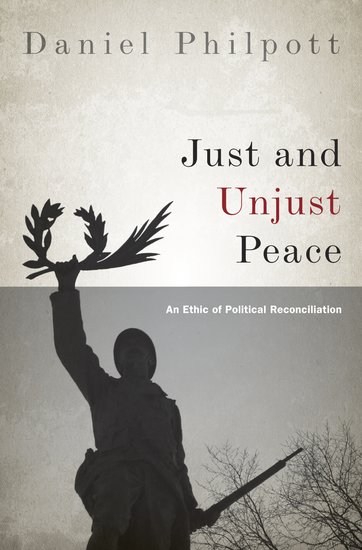By Daniel Philpott
What is the meaning of justice in the wake of massive injustices? This question confronts the countries of the Arab Spring, just as it confronted tens of countries emerging from war and dictatorship over the past generation.
How the Arab Spring countries address the evils of yesterday affects their prospects for peace and democracy tomorrow. Today only Tunisia is reasonably stable. Egypt has just experienced a polarizing election and faces continued uncertainty whether its military will relinquish power. Libya’s national government does not yet control the entire country. Yemen faces a separatist south. Syrian is sundered by civil war. All are rent by the fissures that the past has bequeathed.
Thus far, most of these countries have faced the past via the international community’s dominant orthodoxy of human rights and judicial punishment. This orthodoxy received a boost this past March when the International Criminal Court, the body in which international lawyers and human rights activists have placed their greatest hopes for global justice, secured its first conviction in ten years of operation. In April, the Special Court for Sierra Leone convicted arch war criminal Charles Taylor. Turning to the Arab Spring, the ICC has indicted the late Muammar Qaddafi’s son, Seif, while Tunisia and Egypt have each tried their erstwhile heads of state and several high-level officials. Yemen has adopted a broad amnesty. Syria will surely face the question of trials at some point.
Accountability for arch war criminals is intrinsically just and can fortify the rule of law. But judicial prosecution is not enough. There is little evidence that international tribunals have contributed stability to countries like Rwanda and Yugoslavia whose perpetrators they have tried and sentenced in substantial numbers. The limitation of trials is that they leave untended a wide range of wounds which, like buried landmines, will explode in revenge and retribution if they are not disinterred and defused.
More promising for lasting peace is a different paradigm that has emerged though the fitful politics of past evil: reconciliation. The concept finds its oldest and deepest expression in religious traditions. It is religious leaders like Pope John Paul II and Archbishop Desmond Tutu who have done most to bring reconciliation into global politics. Relevant to the Arab Spring, reconciliation is commended by the Quran and is practiced in rich Middle Eastern tribal rituals known as musalaha.
In Christianity, Judaism, and Islam, reconciliation means the holistic restoration of right relationship. In the political realm reconciliation is advanced through a portfolio of practices that redress the wide range of wounds that political injustices inflict. These practices of reconciliation aim at wider transformative restorations than do rights or judicial punishment.
Truth commissions for instance — over 40 of which have taken place over the past three decades — confer far more than a right to truth but also acknowledgment of the suffering of victims on the part of public authorities, fellow onlookers, and even sometimes perpetrators. When truth commissions are at their best, victims are restored through recognition and often drop their demands for revenge.
Even punishment can be practiced restoratively. Following Timor Leste’s war of the final quarter of the twentieth century, village forums were held in which perpetrators of crimes, victims, and community members would gather before tribal elders, tell how the crimes affected them, and exchange apology and forgiveness, upon which elders would prescribe a reintegrative form of punishment like community service. Although such forums are inadequate to try perpetrators of the worst crimes, they can redress thousands of lesser crimes in restorative fashion.
The most distinct practice of reconciliation is forgiveness. It involves no right but is rather an act of good will on the part of a victim. In most religions forgiveness is no mere dismissal of charges but rather an act that constructs right relationship. Passages in the Quran teach that even in the case of murder, while a victim’s relative may demand death as retribution, it is even better for him to forgive the murderer while receiving diya, or compensation. In the wake of political injustices, forgiveness has been practiced widely in Uganda, South Africa, and Sierra Leone among other places.
Working together, practices of reconciliation can help overcome the divisions that endanger the Arab Spring. As of now, only Tunisia — where democratic stability is greatest — speaks of robust reconciliation. Its Ministry of Human Rights and Transitional Justice has proposed a holistic plan involving truth telling, apologies, and reparations. Even here, progress has been mixed, while other countries have proposed far less. Talk of forgiveness is altogether rare. But lest the Arab Spring revert to wintry bedlam, a politics of reconciliation is needed.
Daniel Philpott is Associate Professor of Political Science and Peace Studies at the University of Notre Dame and author of Just and Unjust Peace: An Ethic of Political Reconciliation (Oxford, 2012).
Subscribe to the OUPblog via email or RSS.
Subscribe to only articles on current affairs on the OUPblog via email or RSS.
View more about this book on the ![]()
![]()


[…] al-qasas — over the non-judicial prescriptions of some international practitioners, such as truth and reconciliation commissions. But beyond these transitional justice-related themes, they also demanded representative […]